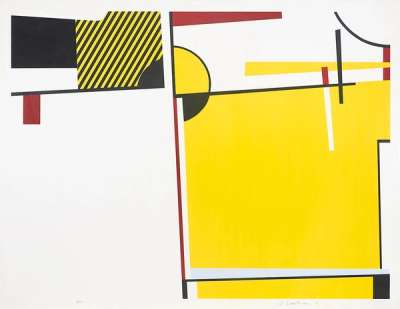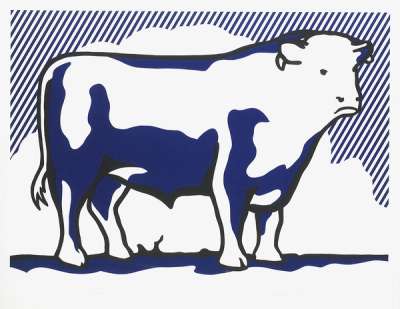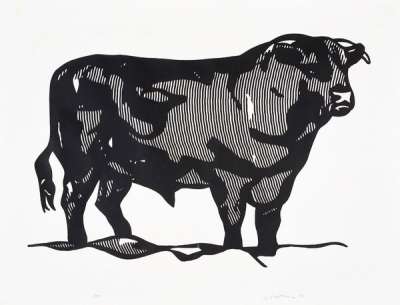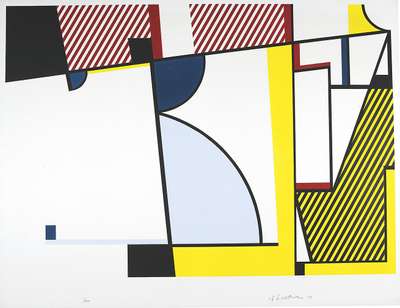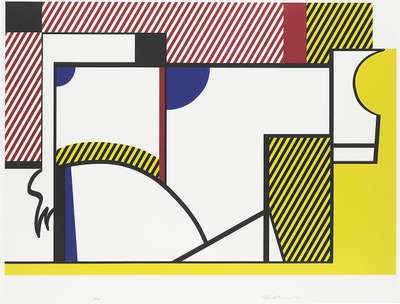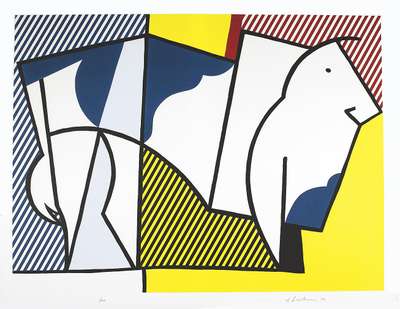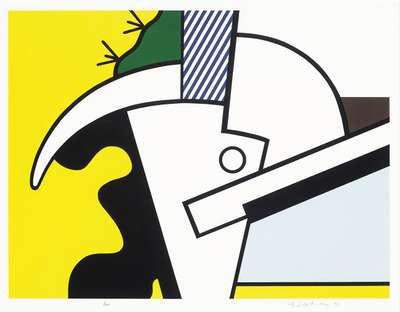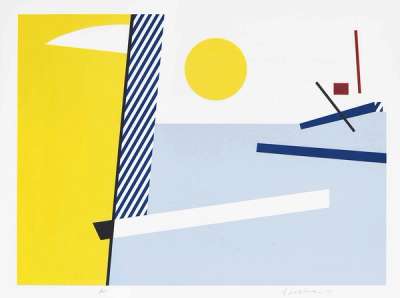
Bull Head I

Bull Head I
Signed Mixed Media
Roy Lichtenstein
Price data unavailable
AAGR (5 years) This estimate blends recent public auction records with our own private sale data and network demand.
There aren't enough data points on this work for a comprehensive result. Please speak to a specialist by making an enquiry.
Medium: Mixed Media
Edition size: 100
Year: 1973
Size: H 54cm x W 75cm
Signed: Yes
Format: Signed Mixed Media
TradingFloor
Track this artwork in realtime
Watch artwork, manage valuations, track your portfolio and return against your collection
Track auction value trend
Auction Results
| Auction Date | Auction House | Location | Hammer Price | Return to Seller | Buyer Paid |
|---|---|---|---|---|---|
| April 2021 | Christie's New York | United States | |||
| October 2018 | Sotheby's New York | United States |
Meaning & Analysis
Roy Lichtenstein’s exceptional Bull Head series of 1973 further expands the artist’s investigation of the relationship between figuration and abstraction, using the image of the Holstein bull. This signed and limited edition of 100 prints employs a combination of lithography, screen print and line cut on arjomari paper.
Roy Lichtenstein rose to prominence as an icon of the Pop Art movement in the 1960s. Following up on his previous six part exploration of 1973, titled Bull Profile series, Lichtenstein presents three compositions in his related Bull Head Series of the same year. The prints in this series revisit the process of abstraction, making the realistic figure of a bull increasingly more unrecognizable as the sequence progresses.
Bull Head I is a partial depiction of the head and upper body of a bull. The work contains a minimalistic amount of technical details, wavering between realism and abstraction. Contrary to Bull Iof Bulls series, Bull Head I is only moderately figurative at this initial stage. Mirroring the soft focal point of Bull II, the illustration of the animal makes use of thick comic book style outlines. The left side of the work is accentuated in bright yellow and a small patch of Lichtenstein’s blue Ben Day dots can be observed above the cattle’s horns.
Lichtenstein’s Bull Head I integrates traditional painterly gestures with simple line cuts, a refined lithographic technique and the ready made marks of screen printing. The artist’s dedication to Pop Art is evident in the calculated disposition and proportion of the figure.
